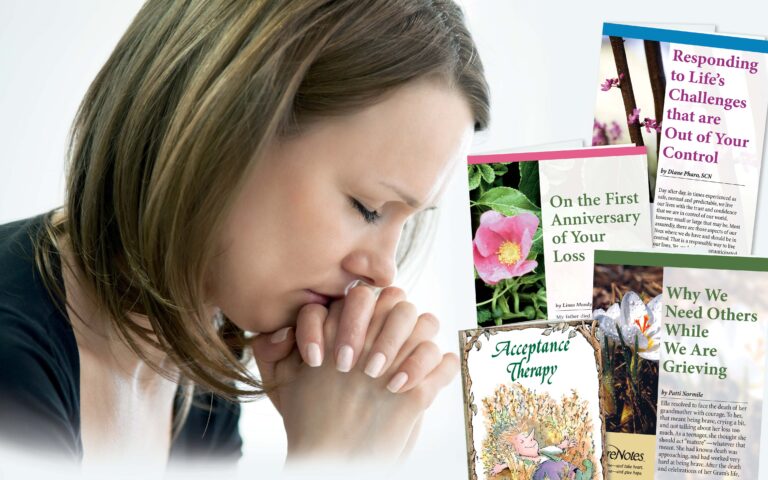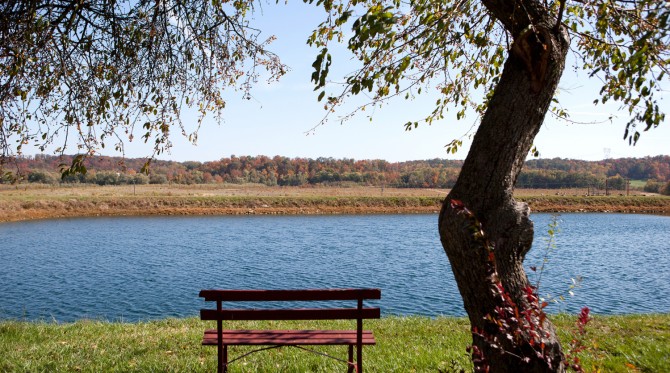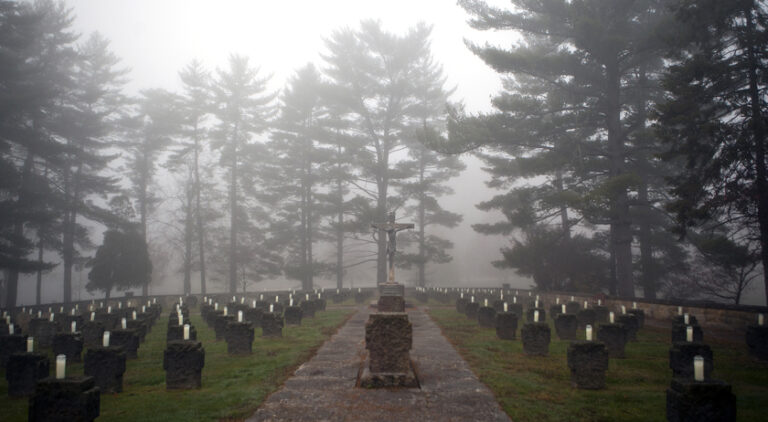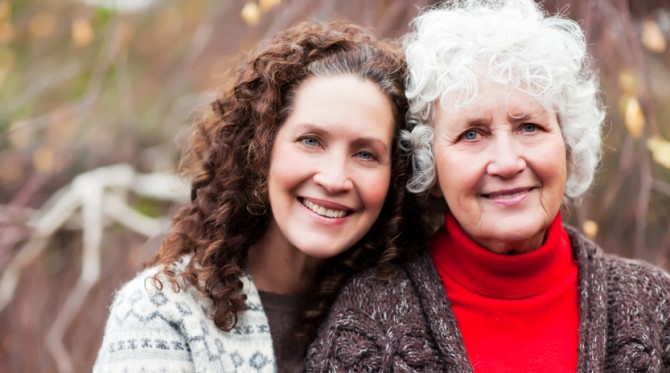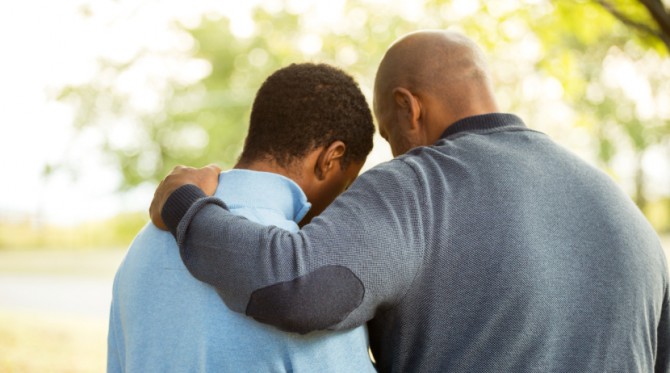by Kass Dotterweich
The first Christmas after my father died was extremely difficult; the second was a little better. The third was just a few weeks away when I received a shoebox-shaped package from my sister. When I called her to say the package had arrived and that I would open it on Christmas, she asked me to open it immediately. With the phone awkwardly tucked between my ear and shoulder, I opened the package to find a bough of three small pine cones, sparsely sprinkled with glitter, with a red velvet ribbon attached.
My sister explained that when she had visited my father’s grave in a national cemetery in Florida earlier that year, pine cone boughs littered the entire area. In honor of our father, she collected a number of them, decorated them, and sent them to me and my brothers as holiday ornaments for our homes. Each year we had remembered Dad in our own individual ways at Christmas. That holiday season, though, my sister went beyond remembering Dad; she honored him.
Working your way through
When certain Christmas carols and other holiday traditions and family gatherings bring our deceased loved one to mind at this time of year, we feel a cold shadow of emptiness pass over the moment, like a dark cloud drifting overhead on an otherwise sunny day.
This is not an uncommon or unfamiliar experience during the holidays. This remembering, although painful, is one of the beautifully God-designed abilities of the human brain. We want to remember everything we can about the person we loved—and continue to love—who is no longer with us.
But we can do more than remember; we can honor our deceased loved one at this special time of year. Understood in this way, “honor” means to make the lives of others somehow better, fuller, and more meaningful in the name of a deceased loved one.
Examples of honoring those who have died include scholarships that are established and funded in the name of a deceased family member. Awards given for special accomplishments are often named after a person who displayed exceptional qualities. When a deceased person’s family asks people to make contributions to a charity rather than send flowers, the family goes beyond remembering their loved one; they honor that person—and we do the same when we comply with their wishes.
Whether your loved one is recently deceased or passed away many years ago, the following ideas are ways for you to honor your loved one at this time of year.
- Give a gift to a special cause in the name of your loved one.
Contribute to an organization that was especially important to your loved one. Or carefully study the solicitations that arrive in your mailbox at this time of year, and make a donation to one of them in the name of your loved one. Reputable causes and organizations have websites that explain how contributions are allocated.
- Make simple holiday ornaments that symbolically represent your loved one, and give them to family and friends.
In making the ornaments and giving them as gifts, you contribute to the festive holiday spirit in the homes of your family members and friends. In honor of your loved one, you give of yourself creatively and personally.
- Hang a holiday welcome wreath on your front door and keep plants or flowers in your home.
The circle is a strong symbol of life; we often hear the term “the circle of life.” Hang a wreath in honor of your deceased loved one, and let it be the first gesture of welcome, warmth, and hospitality that you offer to family and friends throughout the holidays.
You also honor your loved one’s life on earth and eternal life in heaven by surrounding yourself with living things. Some people prefer fresh-cut flowers, and are very conscientious about disposing of the wilted remains in a flower bed where the cycle of life continues.
- Lay a place setting for your loved one at your main holiday meal.
Many families do this when a living loved one cannot be present for a special event. The place setting can have the same soothing effect on the family as it acknowledges the spirit of your deceased loved one still in your midst.
- Honor your loved one in your faith community by lighting a candle or contributing to the holiday floral arrangements that adorn the worship area.
Enhancing your worship space helps the congregation enter more deeply into praise.
- Share an inspiring story about your loved one.
We weave the details of our own lives in the tapestry that our loved ones have left for us in their own lives. Inspire others to be strong, faithful, and courageous by telling stories about your loved one’s acts of strength, fidelity, and courage.
- Send thank-you notes to those who were special to your loved one.
Thank them for bringing the gift of friendship and love into the world through their relationship with your deceased loved one.
- Give to someone an item that belonged to your loved one.
The monetary value of the item is irrelevant. Rather, the giving and the item itself make a gift of immeasurable worth that will last a lifetime.
- Make a new year’s resolution that will honor your loved one throughout the coming year.
Give blood when you can; mentor a child; volunteer your time and skills to a community or global effort to improve the quality of life for another. As Judy Tatelbaum notes in The Courage to Grieve, “Our greatest tribute might be in how we live our lives after a loss.”
- Share your honoring activity with others.
After Hazel died, her husband started making a sizeable donation in her name to their town’s animal shelter every Christmas. Hazel had liked animals a lot and had volunteered about 40 hours a month at the shelter. But her husband never told their kids he was making those Christmas donations. After all, he thought, Jesus says that when we do good, don’t let the right hand know what the left hand is doing.
Then, about the middle of December one year, he was watching his favorite Christmas movie classic, It’s a Wonderful Life, and was inspired by the movie’s main message: Even the little things we do can make a big difference in the lives of others.
That’s when it dawned on him: His donations to the shelter were not fully honoring Hazel. Not letting the family know about the donations seemed more like false pride. Somehow, what he had intended to be a good thing appeared self-serving. He was denying the children the joy of seeing their mother’s goodness live on in the service the shelter provided through those donations. He also recalled that Jesus had said it was not good to light a lamp and then put it under a bushel basket.
On Christmas Day that year, Hazel’s husband told the kids about the donations made in honor of their mother—and they were deeply moved. A year later all three of the kids have called him to say they want to add to the donation he will make to the shelter this year in honor of their mother. Honoring your deceased loved one is a family affair.
Take heart
At Christmas we celebrate the coming of God to dwell in our midst in the birth of Jesus Christ, the one who passed through death to new life. Our loved one has gone through this same passage. Honoring our deceased loved one at Christmas helps us to keep them and what we loved about them always in our hearts, and to see and touch the power of life beyond death.
Kass Dotterweich is a freelance author and the editor of Catechist magazine.
(Reprinted with permission from CareNotes, copyright 2020)

